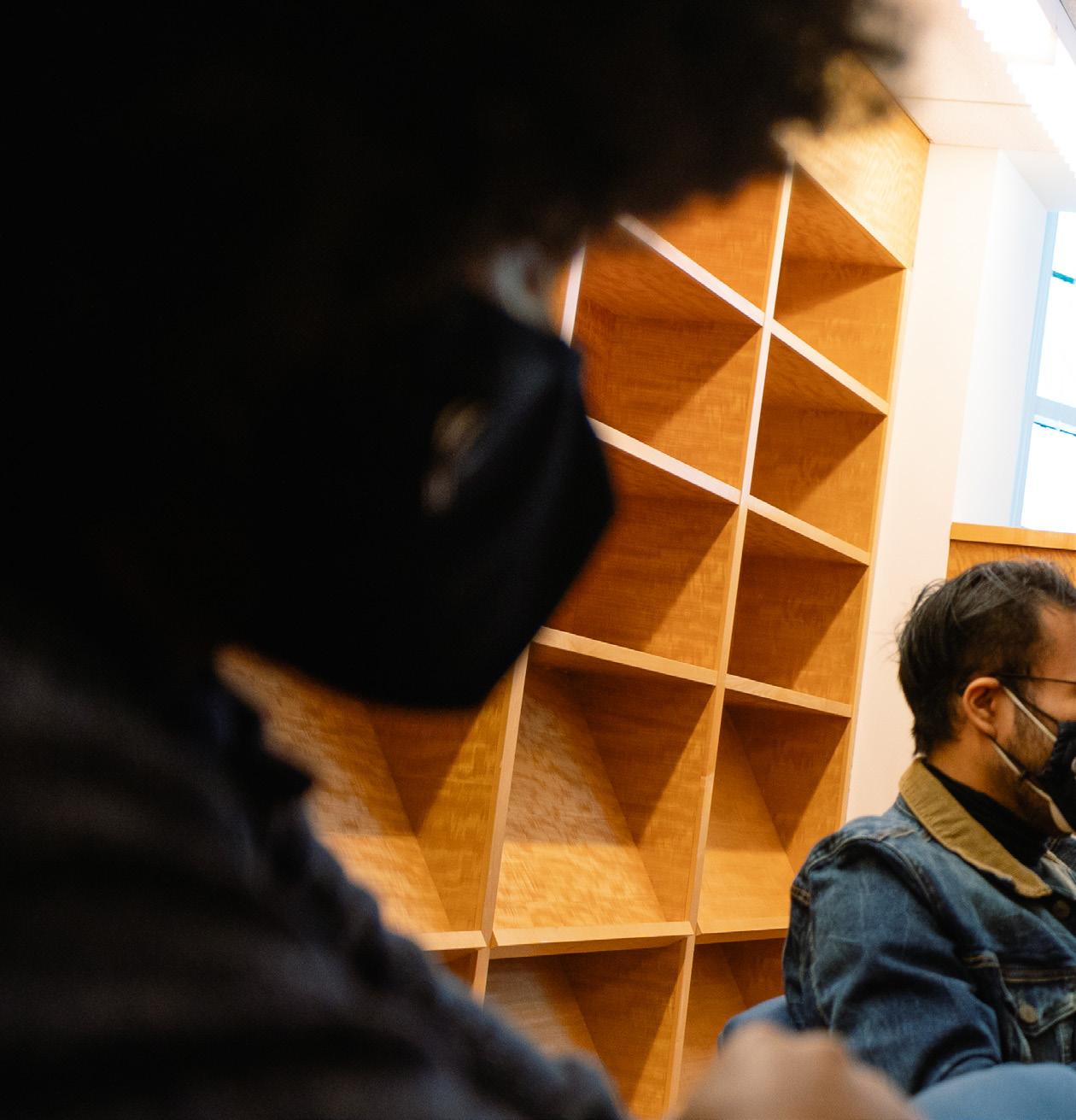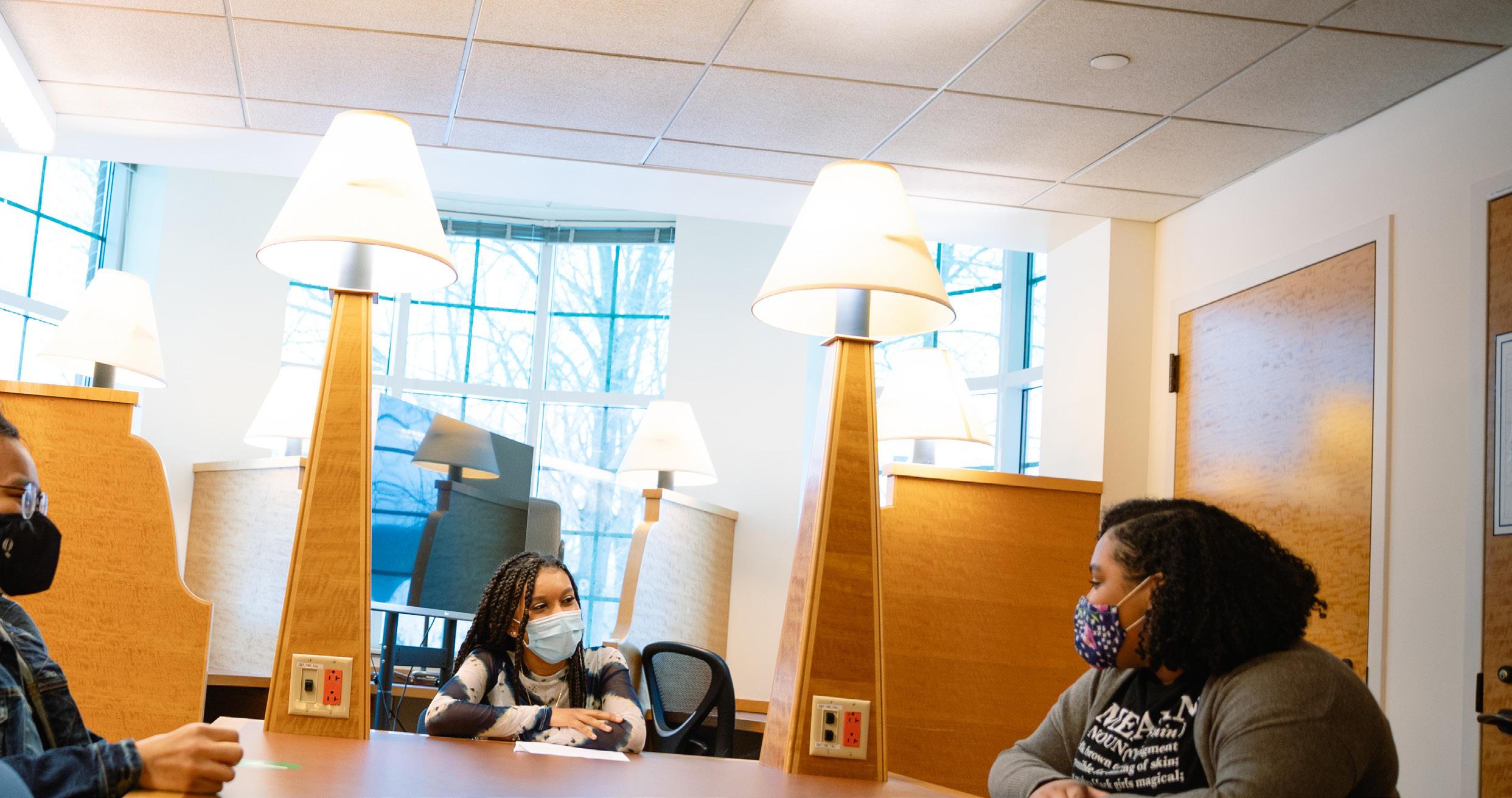
4 minute read
19 – Roundtable Q&A
Panelists
Joshua Gorero
Advertisement
Joshua is the co-president of the Quinnipiac Political Science Association, vice president of the Asian Student Alliance and director of the Website Committee of QUCulture, an initiative by SGA and MSLC. Career-wise, he would like to work in technology policy, human rights, and international diplomacy.
Jailynn Carballo
Jailynn is a senior double major in journalism and political science, She is the president of the school of communications’ ambassador program, the vice president of the National Association of Black Journalists on campus and the founder of York Me for Black Lives
Andrew DePass
Andrew is a senior double major in biology and computer science with a minor in math. He is the executive chair of the multicultural student leadership council and president of the tri-beta biological honors society chapter at Quinnipiac
Olivia Barrios-Johnson
Olivia is a first-year 3+1 journalism major. She also serves as the current First-Year Vice President of the Student Government Association (SGA). She acted as the facilitator of this roundtable discussion
Q: What is activism and what does it look like to you?
Andrew: Activism for me, is noticing something wrong with your everyday life or society and taking the actions needed to first get attention to it and then two: make a change. Joshua: Activism for me, is using your voice for good. Andrew: Before to get a message out, if someone wanted to say and write a thesis and get a bunch of people behind something, they would have to go through some big organization that would have some competing works behind them. But nowadays you can just, over in the matter of a minute, send something that can get eyes from anyone and anywhere and have that be shared.
Q: What other ways than taking to the streets can you be an activist?
Jailynn: I think you can be an activist just in the way you speak to others and the way you address other people. I also think that activism could be seen through small organizations we have here on campus. For me personally, I realized that there was a huge issue here in Communications where there was not really any representation for students of color or students of marginalized communities so myself and some other students started the National Association for Black Journalism. Finding a way to make people’s voices heard that are not usually heard could be a really great way to start with activism.

Andrew: I think something that I’ve realized as I’ve occupied a space of representing others on campus is that sometimes the biggest thing you can do is provide someone with a platform. Olivia: As people of color sometimes we need to educate ourselves on stuff that we may not know. Joshua: I think having conversations like the intimate part of activism, having one to one conversations is good whether we agree or not. Over the summer, with everything going on with COVID-19 and how Asian Americans and other people of color being discriminated against during these times like our cultural organization (Asain Student Alliance) became one of activism.
Q: How did you feel about the way the world responded to the murders of Black people like Breonna Taylor and George Floyd?
Jailynn: Though these murders are not new and these things have happened before, this is the first time in which all Americans were forced and confronted with this and had to see this. When I think about it, it’s sad that it took a global pandemic for people being home and forced to be stagnant for people to care
Q: What did you think about the events that occurred at the United States Capitol on January 6th?
Andrew: This is not a threat in some town, it’s a threat on a government building with all the people that we elected and I think that says it all right there. Joshua: To storm the capitol, it was something symbolically bad. Olivia: If people like us went and stormed the capitol, there would be dogs, fire hoses, gunshots, and rubber bullets.
Q: Where do you stand on the homophic harassment of the student who left Quinnipiac last semester and the way the community responded?
Andrew: With my position in the Multicultural Student Leadership Council, it is crucial that when a community is targeted on campus, we respond. Personally, just the circumstances of it seemed absolutley ridiculous to me. Out of a horrible situation, we saw incredible activism and leadership. When you’re in a space that is made up predominently of people who do not have your same background, you learn to go ahead and work in a space where you’re the minority. Which is the same space that we are going to be going into in the future. Olivia: It was really great for everyone to take the lead and say if we do not see the school doing anything for it, we are going to get it ourselves. Activism 19










